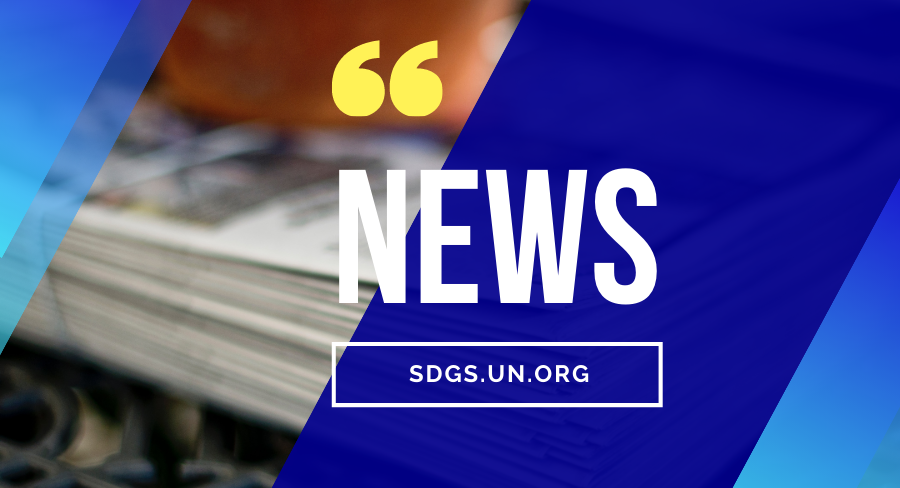News
“Ocean Action for Sustainability – Building a Global Vision to tackle Plastic Pollution”, High-Level UNEP virtual event, Remarks by Ambassador Peter Thomson, UNSG’s Special Envoy for the Ocean.

Excellencies, Ladies and Gentlemen,
Hujambo!
All courtesies observed. Wherever you and your loved ones are situated during this pandemic, I trust you are healthy and happy together. I hope you’re taking strength from the most fundamental lesson of this pandemic, which is of course that of connectivity: our connectivity to family and friends, to communities, countries, institutions, economies and ecosystems. Yes, around the world, a tiny virus has drilled that lesson home with a vengeance.
Let us put our discussions today within the context of our times. In his State of the Planet address just two months ago, the UN Secretary-General, Antonio Guterres, said humanity is waging a suicidal war on Nature. He reported that one million species are at risk of extinction and ecosystems are disappearing before our eyes. He said the Ocean is being overfished, is increasingly choking with plastic waste and that due to anthropogenic GHG emissions, coral reefs, the great bunkers of Ocean biodiversity, are bleaching and dying.
And so, this is the context of our times, the time when all but the obdurate recognize the jeopardy we are imposing on our children and theirs if we continue with this war against Nature. Before it is too late, and that hour is near, we must make peace with Nature. In short, Ladies and Gentlemen, this is the time to be among the peacemakers or suffer the bitter consequences.
There is something else that has now permeated our world from mountain tops to Ocean trenches: the so-called wonder material - plastic. We have unleashed a plastic plague upon Nature and much of its detritus ends up in the long-suffering Ocean. You’ve no doubt heard, that at current rates, by 2050 there will be more plastic in the Ocean than fish. As the pre-eminent report, Breaking the Plastic Wave, put it, plastic pollution alters habitats, harms wildlife and damages ecosystem functions and services.
Since we are talking about plastic pollution today, allow me declare my interest. I come from Fiji and I’m old enough to remember a world largely devoid of plastic. It was a very nice world thank you, and when the so-called throw-away wonder material turned up in the form of plastic bags, school-pens and cigarette lighters, it didn’t take long for them to reappear amongst the flotsam along the tidelines of our beaches. Even back then, in the mind of a day-dreaming Fijian schoolboy, the advent of this cheap, indestructible, throwaway material did not auger well for life and environment.
But there’s no good in wishing the invention of plastic never occurred. It did, and like the internal combustion engine or industrial economies based on burning coal or oil, it became productive and addictive and thus very hard to get rid of, even when its damage to Nature became obvious to everyone.
The benefits of plastic are also obvious, but we should not imagine this makes plastic indispensable. To arrive at true value, those benefits need to be offset against the immense and irrefutable damage plastic is doing to Nature. Neither should we imagine that alternative, environmentally friendly materials are unavailable, or that a truly circular economy for plastic is unattainable.
When I say damage to Nature, Ladies and Gentlemen, I of course include human beings in that statement. Last month I wrote to my colleague, Dr Tedros Ghebreyesus, the Director-General of WHO, to convey my concern that with microplastics having now permeated the planet’s environment, we are on a daily basis inhaling them and ingesting them in our food. I emphasised that microplastics have been widely observed in human organs and the placenta of unborn babies and urged that the health implications of this intrusion should be better understood and explained by medical science. One thing in particular concerns me on this, plastic doesn’t go away, it accumulates.
Ladies and Gentlemen,
If as one might expect, the war against Nature is going to be perpetuated, confronting the plastic plague will be a key battlefront. I thus foresee a long, hard engagement with the producers of plastic, the petrochemical industry, and imagine this battle could make our drawn-out struggle with the tobacco industry look like a bunfight. There are about 100 companies producing the vast majority of the polymers that are the building blocks of plastic. The “polluters pay” principle is on the peace-making table and before too much more damage is done, I believe these companies would be well-advised to come to the table.
I’ve exceeded my allocated time, so I’ll stop here; but will listen to today’s discussions with great interest, and will be available to answer any questions that might come my way.
I thank you for your attention.
